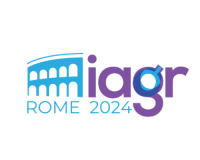
Exploring the link between loot boxes and gambling behaviour
IAGR partner, Greo, provides IAGR members with a snapshot of regulatory approaches to online gambling worldwide.
Greo is an independent knowledge translation and exchange organisation with two decades of international experience helping organisations improve their programs, policies and practices by harnessing the power of evidence and stakeholder insight.
This month, Greo have shared a selection of research around loot boxes.
Studies have explored the similarities between traditional forms of gambling and loot boxes, the purchasable items in video games that contain random items varying in value. Loot boxes are purchased with in-game currencies, which are sometimes earned through game play, but are often purchased with real money. Since loot boxes involve spending money on an activity with an outcome of uncertain value, many people have suggested that there may be strong parallels between loot boxes and gambling, including associated harms.
Some video games use nudging to encourage people to make in-game purchases. For example, games may offer limited-time special items or deals, requiring players to act fast so they don’t miss out. Recent research has found that loot box revenues are disproportionately drawn from people at risk, such as people with gambling problems and young people.
How can stakeholders use research to develop policies, programs, and practices to minimize the harms associated with loot box play?
Recently published gambling research
Below is a selection of plain language research summaries that explore associations between loot boxes and gambling behaviour, and related harms:
- The roles of problem gambling and income in loot box spending
- Comparison of motives for loot box purchasing and gambling
- Examining gateway effects between gambling and loot box purchasing
- Loot box purchasing and problem gambling risk among people who play Call of Duty
- Loot box purchases, monetary gambling participation, and problem gambling in adolescents
- Exploring UK players’ experiences of loot boxes and the parallels with gambling
- The relationships between loot box purchases, gambling, and sociodemographic characteristics
- Loot box use is linked to online gambling and gaming disorders in Spanish adolescents and young adults
- Skin gambling is associated with problematic gambling in adolescents when controlling for other gambling activities
Evidence-informed action
Below are jurisdictional examples of measures related to loot boxes.
Spain
Spain is expected to be the first country in the EU to specifically regulate loot boxes, following the publication of a draft Bill in July 2022. The draft Bill states that the particularities of loot boxes call for their own regulatory framework and highlights the structural and psychological similarities between loot boxes and gambling. The draft Bill prohibits access to loot boxes by anyone under the age of 18 and obligates companies to set self-exclusion mechanisms and spending limits for loot boxes.
Belgium
In 2018, the Belgian Gaming Commission made loot boxes illegal. This followed an assessment which stated that the reward obtained from a gambling activity does not necessarily have to be of monetary value. Under this interpretation, loot boxes are considered gambling and authorities requested that video game publishers remove loot boxes from games offered in Belgium. However, a recent study suggests that the loot box ban is not being enforced in Belgium and that loot boxes are still available.
- Video game loot boxes declared illegal under Belgium gambling laws
- Breaking Ban: Belgium’s ineffective gambling law regulation of video game loot boxes
Norway
Earlier in 2022, the Norwegian Consumer Council published a report that argued for the regulation of loot boxes. The report was backed by 20 different organizations in 18 European countries, who launched a coordinated campaign that asked authorities in their jurisdiction to take action to prevent harms.
United Kingdom
Following a 22-month consultation, the UK government announced in July that they will discuss tougher industry-led protections for loot boxes, instead of introducing legislation to impose curbs or restrictions. The government also concluded that while there was “a stable and consistent” association between loot boxes and problem gambling, it could not be sure that there was a causative link.





